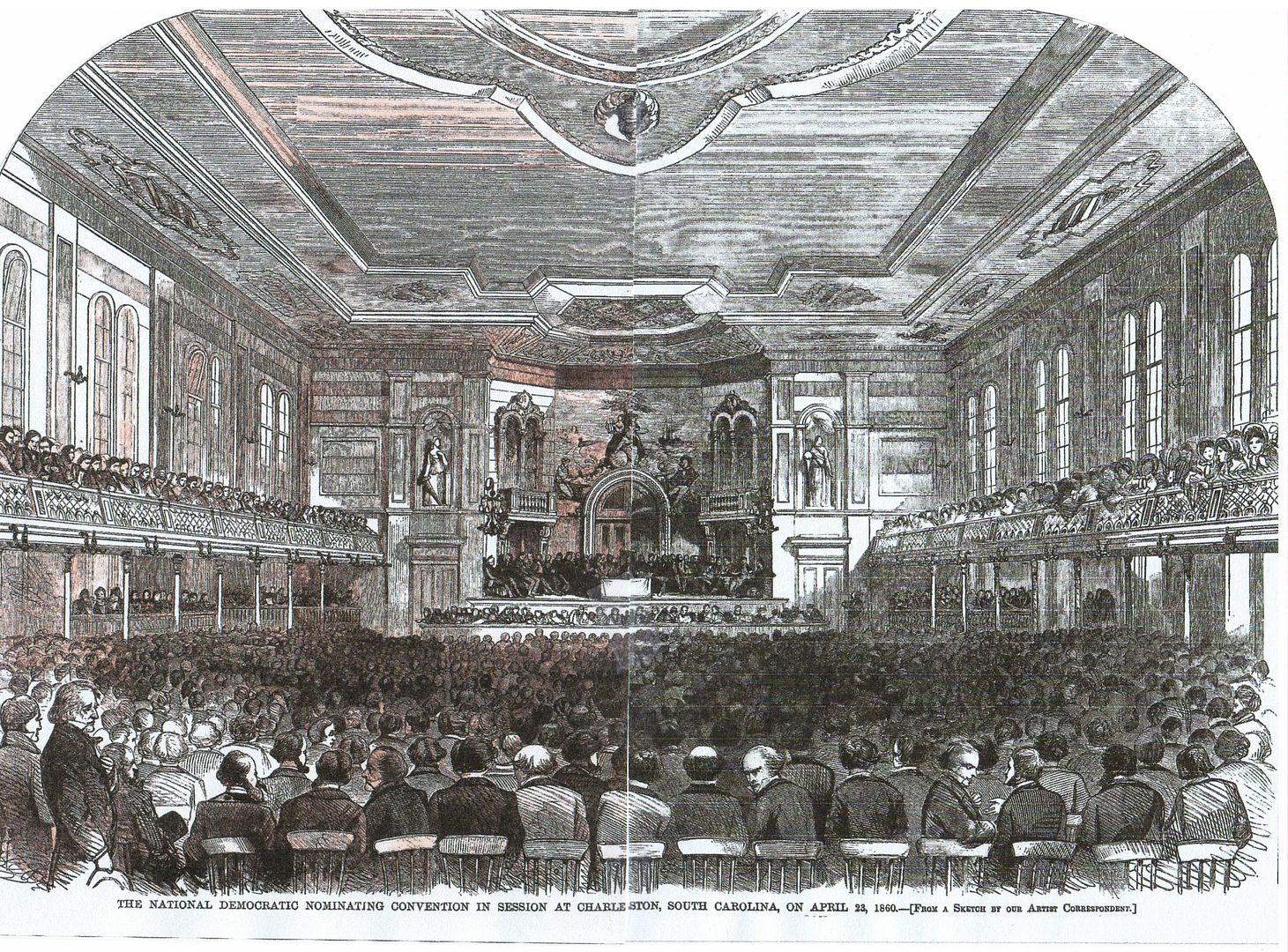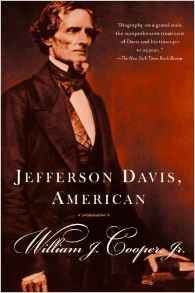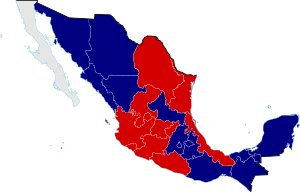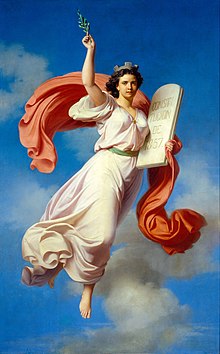
Posted on 03/31/2020 6:56:25 AM PDT by Homer_J_Simpson




























Free Republic University, Department of History presents U.S. History, 1855-1860: Seminar and Discussion Forum
Bleeding Kansas, Dred Scott, Lincoln-Douglas, Harper’s Ferry, the election of 1860, secession – all the events leading up to the Civil War, as seen through news reports of the time and later historical accounts
First session: November 21, 2015. Last date to add: Sometime in the future.
Reading: Self-assigned. Recommendations made and welcomed.
Posting history, in reverse order
To add this class to or drop it from your schedule notify Admissions and Records (Attn: Homer_J_Simpson) by reply or freepmail.

Continued from March 1 (reply #18) . This excerpt covers a long time period. I got today's posting date somewhat randomly from footnote #80 (third paragraph). It references a letter Davis wrote to one M.D. Haynes on this date.


William J. Cooper, Jr., Jefferson Davis, American
Mexican civil war, Rebel General Miguel Miramon, blue=conservative rebels, red=liberal government:

 "The Naval Action of Sixth March – 14, 24"
"The Naval Action of Sixth March – 14, 24"
Known as the Battle of Antón Lizardo, off that town in the Gulf of Mexico, the US Navy intervened in a Mexican civil war, the Reform War.
The US sided with the liberal Mexican government against church supported rebels.
The results were instrumental in defeating the rebellion.
Captures yielded thousands of rifles & artillery shells, the loss of which forced defeat on Rebel General Miguel Miramon.
USS sloop of war Saratoga, which (among others) went with Perry to Japan in 1853, defeated Mexican rebels in 1860, captured the slaver Nightingale in 1861 and served in the Union blockading fleet:
Among the rebel ships captured was the Marquis of Havana a 680 ton single-screw bark-rigged armed steamer: 
In March 1861 Confederates purchased the Marquis of Havana, renamed it the CSS McRae, repaired & outfitted it as a gunboat, defending the lower Mississippi and providing cover for blockade runners.
In April 1862, at the Battle of Forts Jackson and St. Philip CSS McRae was severely damaged and scuttled.
BTTT for some important but little known history. Thanks Joe!
I wonder if the rebel side sent emissaries to Washington to persuade the U.S. government to recognize them as the legitimate Mexican government.
Some have argued, seriously, that the really, really real reason for secession & civil war was the transcontinental railroad route.
All the North had to do was agree to Jefferson Davis' Southern route and all those other problems (slavery) would melt away.
1869 painting Alegoría de la Constitución de 1857:
Homer_J_Simpson: "I wonder if the rebel side sent emissaries to Washington to persuade the U.S. government to recognize them as the legitimate Mexican government."
Not that I know of, just the opposite:
"The government of U.S. President James Buchanan recognized the [Liberal] Juárez regime in April 1859 and the U.S. and the government of Juárez negotiated the McLane-Ocampo Treaty, which if ratified would have given the Liberal regime cash but also granted the U.S. transit rights through Mexican territory..."
But the defeat of Mexican conservatives (monarchists) in 1860 was far from the end of this story, as France's Napoleon III intervened at the end of 1861...
That's about what I was thinking. I put my question as I did because I was thinking of another rebel cause - not quite fully formed - that will be appealing to European powers for legitimacy and intervention.
;-)

This map shows the actual 1861 railroads running north-south and east-west near Vicksburg.
Sen. Douglas of Illinois favored the northern route from Chicago. Eventually everyone got their way with Nothern, Central and Southern Pacific.

The Diary of George Templeton Strong, Edited by Allan Nevins and Milton Halsey Thomas
COLUMBUS, April 2, 1860.
MY DEAR SIR: Your letter reached me just as I was leaving home, and I take the first moments at my command since my return for reply.
You have doubtless learned ere this that I had anticipated Mr. Seward's suggestion by sending to Mrs. B. a list of the subscribers to the Chicago Block purchase who have not already assigned to her the shares held by them, with a suggestion that some friend in Washington write or speak to each suggesting similar transfers. I have no doubt that all, or nearly all, will act at once; and I suppose this property must be actually worth even now (say) three thousand dollars. This will certainly be some help; but it cannot be permanent. Nor is it easy to say what can be done in the way of permanent help. After the neglect of the obvious duty of providing for the Era by the Republican members of Congress, it is hard to say what can be expected from political friends. If I had power I am very sure I should find a way of testifying a proper sense of the worth of the father by giving such honorable employment to his sons as would enable them to support the family. In time the rise of property at Chicago will, I think, afford a competency, with proper efforts and success of the boys so aided. But meanwhile what is to be done? I see no way in which the Era can be made available. It will be hard to find anybody who would be willing to take its list and supply its subscribers for the good-will; much harder to find anybody to pay anything in addition. But perhaps I am wrong in saying that I see no way of availing of the Era. Mr. Clapham thinks, I understand, that with a vigorous editor associated with himself the paper might and could be placed on a paying basis and made profitable. So it seems to me. If such a person, then, could be found, and the Era could be revived in friendly hands, Mrs. B. might start the child's paper she proposes with an excellent prospect of success. It seems to me certain that a good Republican paper in Washington, seeking no public patronage, but taking that which would naturally come to it, would not only live but prosper. You with your abilities might from such a point do great good — exceedingly great good — with no detriment, but with advantage, to yourself. To be sure it would require work; but you have the intellectual and physical energy which would sustain it.
Should it be impossible to revive the Era, I will join in whatever other plan may be agreed on by our friends at Washington in aid of Mrs. B. and her family to the extent of my means. These, however, are now so thoroughly exhausted by the heavy drafts made on me by the necessary expenses of my position during the last four years (for you perhaps know that we have no governor's house, nor rent for one, and only a salary of $1800). I cannot advance any money immediately. In the course of the year, however, I would do my share.
If I were to consult my own feelings I should not thus restrict my offer; but I am compelled to bow to absolute necessity. I wish there were some way of giving employment to the boys. But there is not. Our public employes are wretchedly paid; but the positions, badly compensated as they are, are sought in this time of general depression by three applicants at least for every post, and those who have them to dispose of think themselves bound to prefer Ohio applicants. Being myself out of office, I have no influence which would sway them to different views or action. The neglect of Mrs. B. and the Era by our political friends at Washington has produced a deep and painful impression in many quarters, and may have wide and unhappy influences. It is greatly to be deplored on all accounts.
For myself I have felt for some time an increasing disposition to quit political life. It would have been entirely satisfactory to me had our friends here in Ohio been willing to allow me to close it with the expiration of my term as governor. But they thought that I ought to consent to an election to the Senate as an indorsement with reference to another place, and I did consent, perhaps unadvisedly. But, having consented, I shall abide the issue. The indications are that the choice of Ohio will not be confirmed by the Republican preferences of other States. Should such be the fact, I shall give an honest, independent support to the man whom the Republicans do prefer, and at the close of the struggle feel myself at liberty to consult my own inclination and judgment with regard to further public service.
S. P. CHASE.
J. S. PIKE, Esq.
SOURCE: James Shepherd Pike, First Blows of the Civil War: The Ten Years of Preliminary Conflict in the United States from 1850 to 1860, p. 504-6
April 2, MONDAY. To Trinity Church vestry meeting tonight. As I railroaded homeward at ten, there was much people in and around the Tribune office, waiting, no doubt, for returns of today’s Connecticut election; the first gun fired in the presidential campaign. . . .
The Diary of George Templeton Strong, Edited by Allan Nevins and Milton Halsey Thomas
I’m so not ready for a Presidential election. It seems like we just got through the last one!
Maybe the Founders should have given the President a longer term.

The Diary of George Templeton Strong, Edited by Allan Nevins and Milton Halsey Thomas


Abraham Lincoln: Speeches and Writings 1859-1865, edited by Don E. Fehrenbacher
Eagleswood, Perth Amboy, N. J., April 6th, 1860.
Do not feel at all troubled, or imagine that we have the least feeling of blame towards you, that the two daughters did not come here to school. We should have been delighted to have had them here, and as it had been pretty generally talked of, that they were expected here, we naturally felt a little disappointed at first, but, on the whole, as these Mass. friends were the old friends of your husband, and they are there nearer your home and the school an excellent one, we do not doubt that your decision was a wise and good one and we rejoice that while it secures the means of education to them, it allows (with your consent) the $250 to go to other members of the family, in whom we also feel deep interest and sympathy.
We shall send the checks tomorrow, as you have designated.
It will always give us pleasure to hear of your prosperity and happiness. . . .
Any storekeeper will give you the money for this check.
SOURCE: Lillie Buffum Chace Wyman and Arthur Crawford Wyman, Elizabeth Buffum Chace, 1806-1899: Her Life and Its Environment, Volume 1, p. 353

The Diary of George Templeton Strong, Edited by Allan Nevins and Milton Halsey Thomas
Disclaimer: Opinions posted on Free Republic are those of the individual posters and do not necessarily represent the opinion of Free Republic or its management. All materials posted herein are protected by copyright law and the exemption for fair use of copyrighted works.